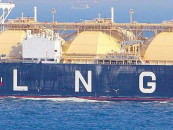What the US and Pakistan must do now
They must reassess their core interests, shed brinkmanship and make ‘small’ compromises.

What the US and Pakistan must do now
Firstly, a nuclear-armed state finds it difficult to deter its superpower ally from repeatedly violating its sovereignty. Would the US attack its Nato, Middle Eastern and Asia-Pacific allies? The costs would far outweigh the benefits. Pakistan repeatedly threatens the US of ‘consequences’ but does not follow through. Secondly, Pakistan and the US are probably the only allies who employ disparate means to achieve similar ends. Their second marriage of convenience over the future of Afghanistan is the case in point.
That said, after the November 26 attack, statements by officials indicate that both sides realise the dangers of an adversarial relationship but they fail in building confidence. Prime Minister Gilani’s interview to the Associated Press on December 5 and Clinton’s quick appreciation captures the sentiment. Has Pakistan been ‘compelled’ to react to the Nato incursion? By overreacting, Islamabad might end up doing what the detractors are compelling it to do.
For instance, the American contractors would like their billion dollar businesses to flourish in the prolonged war. An order to withdraw affects this commercial interest. As the US presidential elections draw nearer, Pakistan’s ‘intransigence’ over fighting the American-war-the-American-way gives a good opportunity to the candidates in shifting all the blame of bad policies of the Afghan War on Islamabad.
A state loses credibility of its deterrence once it draws red lines and allows them to be violated. Islamabad has asked the US to vacate the Shamsi airbase by December 11 and has blocked Nato supplies. These are tough decisions and indicate that Islamabad intends to ensure that the ‘red lines’ are not violated again.
Pakistan needs the US for military aid and economic reasons, amongst others. As for America, a permanent foothold in Afghanistan to contain Russia and China besides controlling untapped mineral resources cannot be realised without Pakistan.
The Pakistan-US trust deficit has several reasons. Firstly, Pakistan views the US as being engaged in a short-term, transactional relationship. Likewise, Washington doesn’t see Islamabad as a trustworthy partner. Pakistan is hesitant to commit to any new distribution of power in Afghanistan that would potentially lead to a loss of its influence or prolong the conflict on its own soil. The US is reluctant to grant that space to Pakistan. Also, Islamabad sees the US-India partnership as a threat whereas, the US cannot afford to ignore the economic and geopolitical incentives India offers.
The US sees a threat to its security from the Pakistan-China relationship and considers Islamabad a drag in New Delhi’s bid to contain Beijing. Pakistan has for long seen its relations with the US with altruism and misperceives these as charitable.
Since the US is apparently at fault, it must forego imperial hubris and offer a sincere apology to the people of Pakistan. Additionally, it must vacate Shamsi airbase by December 11 and stop useless drone strikes unless approved by Pakistan. In return, Islamabad can reopen supply routes but bill the US for transit fees instead of providing ‘free lunches’.
These steps will encourage Pakistan to exercise its influence over the majority Sunni Pashtuns in Afghanistan to reach a settlement over future power structures. If allowed to prolong, the Pak-US current impasse would be catastrophic for both countries. They must reassess their core interests, shed brinkmanship and make ‘small’ compromises.
Published in The Express Tribune, December 8th, 2011.















COMMENTS
Comments are moderated and generally will be posted if they are on-topic and not abusive.
For more information, please see our Comments FAQ